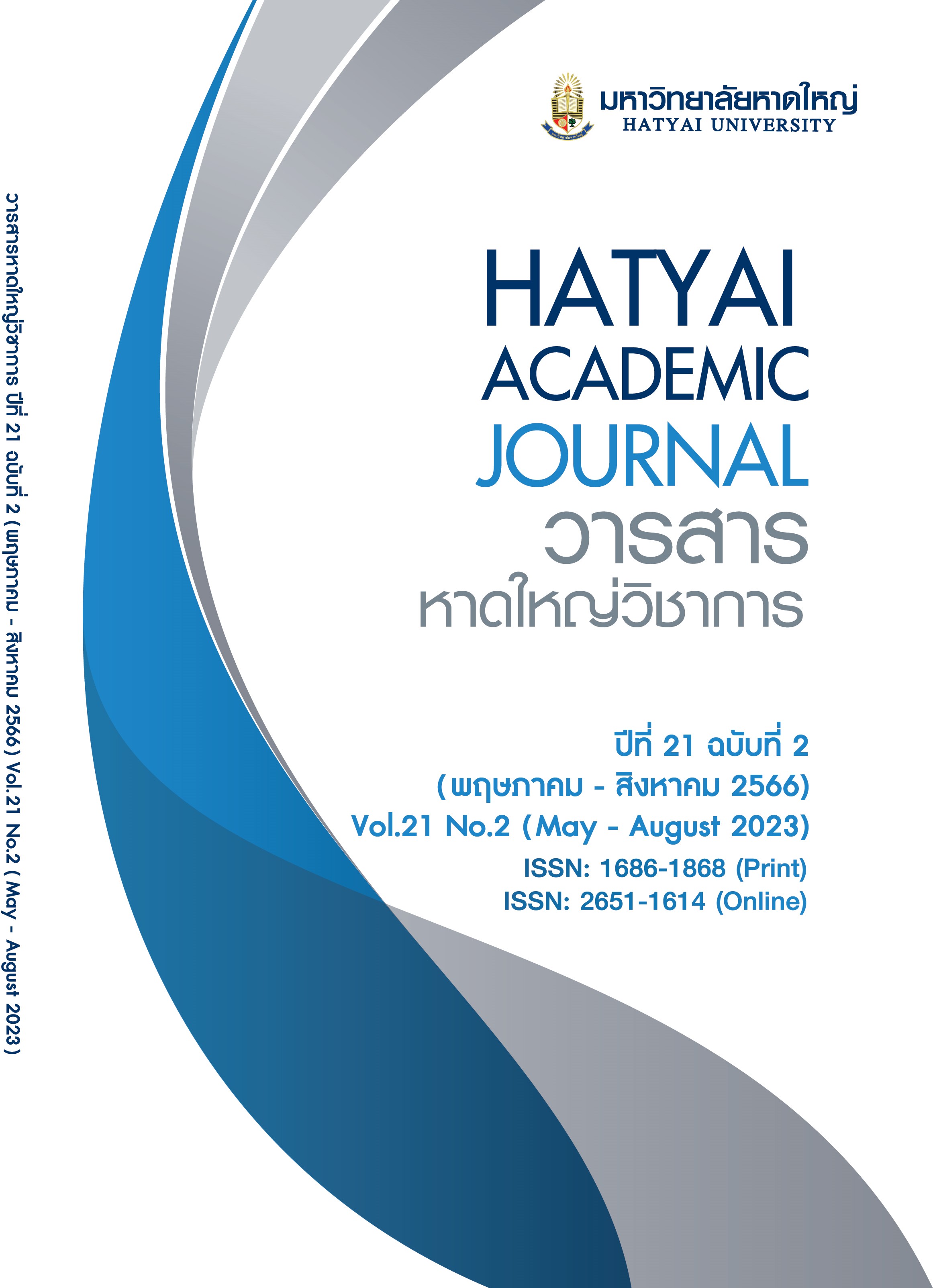Influence of New Public Management of Government Assessment: Indicator Problem and Real Benefits
Main Article Content
Abstract
Influence of new public management of government assessment: metric problem and real benefits although new public management idea has initiated since 1990, and it is still criticizing. NPM has influenced to government around the world, including Thailand, there are some NPM restructuring in Thai government public management from past to present. The main objectives of these research are 1) To review basic principle of NPM concept and 2) To analyze problems which have affected Thai government from using NPM concept. The research had shown that there are 3 phenomenal results which Thai government has applied public management structure by following NPM concept, such as 1) influence of NPM concept has affected government structure, 2) influence of NPM concept has affected operation of government objective, 3) influence of NPM concept has affected assessment of government operations.
Article Details

This work is licensed under a Creative Commons Attribution-NonCommercial-NoDerivatives 4.0 International License.
All published articles are evaluated by three qualified peer reviewers from various institutions through a double-blind process, where reviewers do not know the authors’ identities and authors do not know the reviewers’ identities. The content and articles in the Hatyai Academic Journal reflect the authors’ views only and are neither the opinions of the editorial board nor the responsibility of Hatyai University. The Editorial Board of the Hatyai Academic Journal allows articles to be reproduced for academic purposes, on the condition that the original source is clearly cited.
References
Barzelay, M. (1992). Breaking through bureaucracy: A new vision for managing in government. Berkeley: University of California Press.
Bowornwathana, B. (2006). Transforming bureaucracies for the 21st century: The new democratic governance paradigm. In E. E. Otenyo & N. S. Lind (Eds.), Comparative public administration (15th ed., pp. 667-679). Bingley, UK: Emerald.
Bowornwathana, B. (2011). Reorganization: The international of encycopedia political science. California: SAGE.
Christensen, T., Lægreid, P., Roness, P. G, & Røvik, K. A. (2008). Organization theory and the public sector: Instrument, culture and myth. London: Routledge.
Denhardt, J. V., & Denhardt, R. B. (2007). The new public service: Serving, not steering (Expanded ed). Armonk, New York: M.E. Sharpe.
Henry, N. (2010). Public administration and public affairs (11th ed.). New York: Pearson.
Hood, C. (1991). A public management for all seasons?. Public Administration, 69(1), 3-19.
Hood, C., & Dixon, R. (2015). A government that worked better and cost less?: Evaluating three decades of reform and change in UK Central Government. Oxford: Oxford University Press.
Lynn, Jr., L. E. (1998). The new public management: How to transform a theme into a legacy. Public Administration Review, 58(3), 231-237.
Osborne, S. (2010). The new public governance?: Emerging perspectives on the theory and practice of public governance. Oxon: Routledge.
Ostrom,V., & Ostrom E. (1971). Public choice: A different approach to the study of public administrative. Public Administration Review, 31(2), 203-216.
Painter, M. (2003). Policy capacity and the effects of new public management. In T. Christensen & P. Lægreid (Eds.), New public management: The transformation of ideas and practice (pp. 209-229). Aldershot: Ashgate.
Pathranarakul, P. (2000). Open system evaluation: A challenge for good govern. NIDA Development Journal, 40(1), 3-15. [in Thai]
Pollitt, C. (1990). Managerialism and the public services: The Anglo-American experience. Oxford: Basil Blackwell.
Pollitt, C. (1995). Justification by faith or by works? Evaluating the new public management. Evaluation, 1(2), 133-154.
Rhodes, R. A. W. (1996).The new governance: Governing without government. Political Studies, 44, 652-667.
Van de Walle, S. (2008). What services are public? What aspects of performance are to be ranked? The case of ‘services of general interest’. Inter-national Public Management Journal, 11(3), 256-274.
Waldo, D. (1952). Development of theory of democratic administrative. American Political Science Review, 46, 81-103.
Wegrich, K. (2009). Public management reform in the United Kingdom: Great leaps, small steps, and policies as their own cause. In S. Goldfinch & J. Wallis (Eds.), International handbook of public management reform (pp. 137-154). Cheltenham: Edward Elgar.


